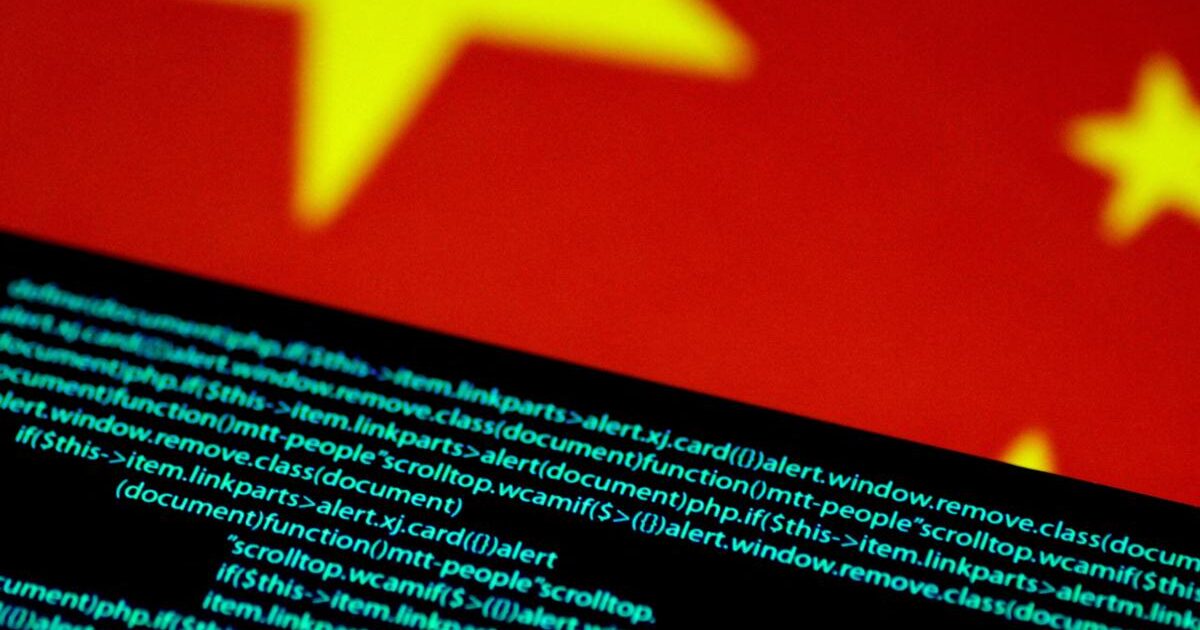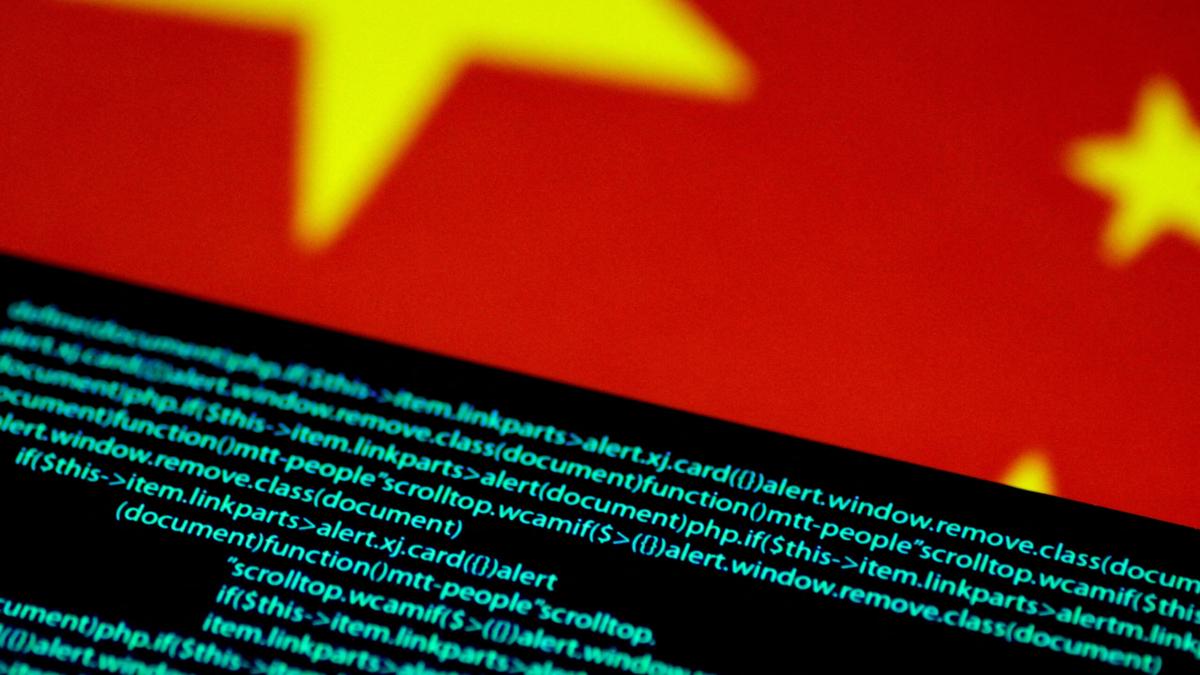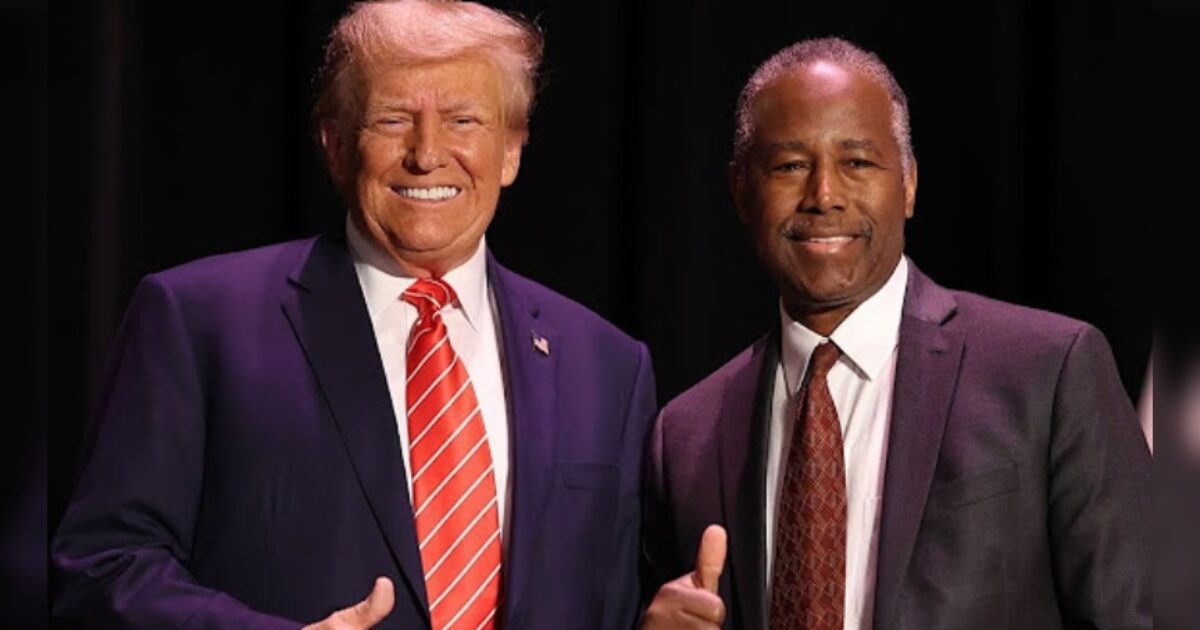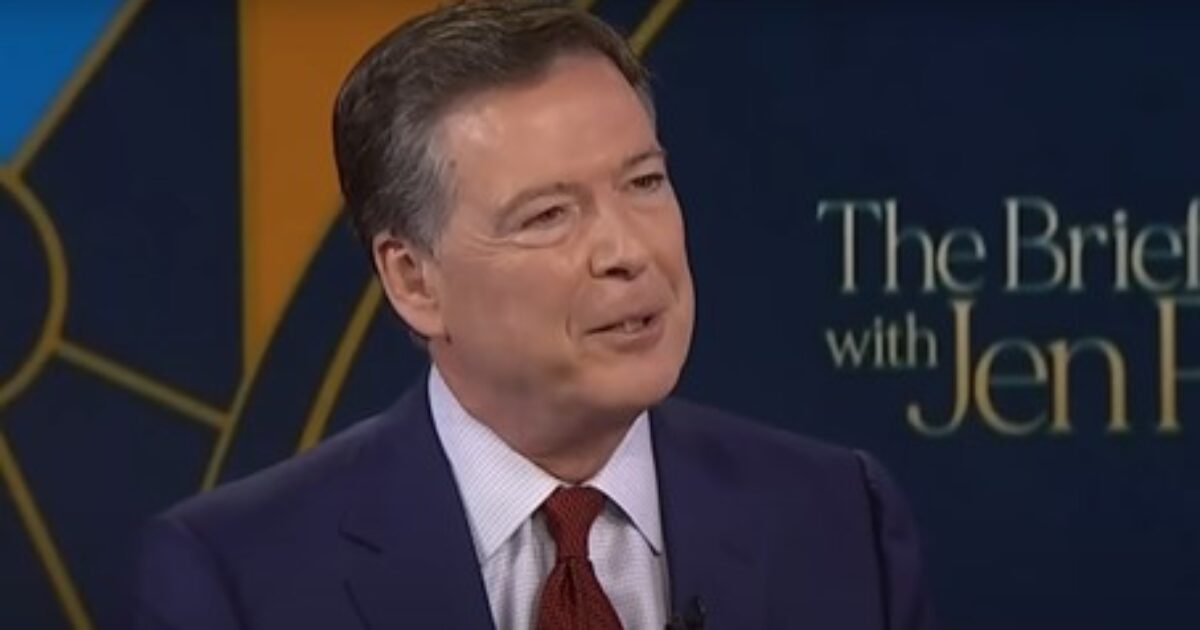Politics
The 3500 year History of China, the CCP and how GETTR are Making a Stand for Freedom


The 3500 year History of China, the CCP and how GETTR are Making a Stand for Freedom
The China of the modern world that is controlled by the Chinese Communist Party (CCP) is very different from the China of history. In fact the history of China is over three millennia old.
Ancient China
The first period or age of China is known as Ancient China. The first confirmed dynasty with written records is the Shang Dynasty (sometime between 1600–1046 BC). Developments during this time were bronze technology, writing, and a feudal system. The other dynasty during Ancient China was the Zhou Dynasty (1046–256 BC) when major philosophies like Confucianism and Taoism developed.
Imperial China
The next major period is called Imperial China (221 BC – 1912 AD) which was started by China’s first emperor, Qin Shi Huang, and is known as the Qin Dynasty (221–206 BC)
During this China was united and the first Great Wall was built.
Next was the Han Dynasty (206 BCE – 220 AD) which is thought of as a Golden Age of Chinese civilization with many major scientific and cultural advancements.
Three Kingdoms (220–280 AD) saw China divided after Han’s fall and then the Jin and Northern/Southern Dynasties (265–589 AD).
The Sui Dynasty (581–618 AD) reunited China but was overthrown due to forced labour and taxes.
The Tang Dynasty (618–907 AD) is known as another Golden Age. Trade flourished and the Silk Road was revived.
The Song Dynasty (960–1279 AD) is known for innovation and gunpowder and printing among many other developments. Eventually it was conquered by the Mongols.
The Yuan Dynasty (1271–1368 AD) was founded by Kublai Khan, a Mongol, and for the first time China was fully ruled by a non-Han people. During this era Marco Polo visited China.
The Ming Dynasty (1368–1644 AD) restored Han Chinese rule. The Great Wall was expanded and Zheng He’s voyages explored Asia and Africa.
The Qing Dynasty (1644–1912 AD) was the last imperial dynasty. In 1895 it lost Taiwan to Japan and was overthrown in 1911 in the Xinhai Revolution.
Modern China (1912 – Present)
The Republic of China (1912–1949) was founded by Sun Yat-sen. It was a period of instability: Japanese invasion (1931–45) and civil war.
The People’s Republic of China (1949–present) was founded by Mao (1949–1976) and was the beginning of communism in China and is marked by land reforms, industrialisation and one-party rule.
The Great Leap Forward (1958–62) led to famine and the deaths of up to 45 million people.
The Cultural Revolution (1966–76) led to persecution of intellectuals and the destruction of heritage and culture.
The Reform Era (1978–present) started after Mao’s death with massive economic growth and turned China into a global manufacturing hub.
21st Century China has been marked by Xi Jinping becoming paramount leader in 2012, and we have seen increasing authoritarianism, surveillance state, social credit system.China now has huge global ambitions with the Belt and Road initiative and military buildup.
The Rise of the Chinese Communist Party (CCP): Suppression, Infiltration, and the Battle for Free Speech
The Chinese Communist Party (CCP), founded in 1921, emerged as the ruling power of the People’s Republic of China (PRC) in 1949 after defeating the Kuomintang in the Chinese Civil War. Under Mao Zedong’s leadership, the CCP established a totalitarian regime, consolidating power through Marxist-Leninist ideology and suppressing dissent. Since then, the CCP has maintained a political monopoly, evolving into a sophisticated authoritarian system under Xi Jinping, who has centralized control since 2012. The party’s rise has been marked by rapid economic growth and global influence, but this has come at the cost of individual freedoms, with free speech eradicated and citizens controlled through fear and restricted information access. Beyond its borders, the CCP has extended its influence by infiltrating institutions in the United States and the United Kingdom, prompting resistance from media platforms like GETTR, which opposes the CCP’s tactics and understands its strategies better than other social media platforms.
Suppression of Free Speech and Control Through Fear
Within China, the CCP has systematically dismantled free speech to maintain its grip on power. The Great Firewall of China, a vast internet censorship system, blocks access to foreign websites like Facebook, Twitter, and Amnesty International, creating a controlled “intranet” that isolates citizens from global perspectives. Social media platforms like WeChat are heavily monitored, with keywords such as “Xi Jinping” or “Tiananmen” triggering censorship or surveillance. A 2017 BBC report noted that even humorous references to Xi, such as comparing him to Winnie the Pooh, are blocked to prevent ridicule of the regime. The CCP’s propaganda arm, the Central Propaganda Department, oversees all media, ensuring that newspapers, television, and online content align with party narratives. Journalists face strict rules, and outlets must promote “moral values” and “spiritual civilization,” stifling independent reporting.
Fear is a cornerstone of the CCP’s control. The party’s surveillance state, bolstered by facial recognition and social credit systems, tracks citizens’ behavior, punishing dissent with job loss, imprisonment, or social ostracism. Leaked censorship documents from social media companies reveal that the CCP targets influential voices, co-opting or repressing “thought leaders” to prevent challenges to its authority. During events like the 2022 Shanghai COVID-19 lockdown, censorship of public discontent was so overt that it fueled anger, yet the CCP’s rapid content removal and fabricated posts suppressed dissent. By controlling information and instilling fear, the CCP ensures compliance, limiting citizens’ ability to question the regime or access alternative viewpoints.
CCP Infiltration in the US and UK
The CCP’s influence extends far beyond China, with strategic infiltration of institutions in the US and UK to shape narratives and suppress criticism. In the US, Confucius Institutes, once numbering over 120 on college campuses, have been criticized for chilling academic freedom and promoting CCP propaganda. Though reduced to about 14, these institutes mandate research partnerships with Chinese universities tied to the military, facilitating intellectual property theft and suppressing free speech on issues like Tibet or the Dalai Lama. The CCP’s United Front Work Department, described as a “magic weapon” by Xi Jinping, co-opts diaspora communities, businesses, and local governments to advance pro-Beijing narratives. For example, the Houston Rockets’ general manager was pressured to apologize after tweeting support for Hong Kong protests, illustrating the CCP’s ability to influence American institutions like the NBA.
In the UK, the CCP has similarly targeted academic and cultural spheres. Chinese Students and Scholars Associations monitor Chinese students, discouraging criticism of the regime, while universities with financial ties to Chinese entities face pressure to self-censor. The CCP’s media influence is also evident, with state-owned outlets like CGTN broadcasting propaganda and Chinese tech firms like Huawei, closely tied to the CCP, seeking to dominate 5G infrastructure, raising concerns about data security. A 2024 US House Committee hearing highlighted the CCP’s “political warfare,” noting its efforts to manipulate financial markets, agriculture, and technology sectors in both nations, exploiting democratic freedoms to undermine them.
GETTR’s Opposition and Understanding of the CCP
GETTR, a social media platform launched in 2021, has positioned itself as a staunch opponent of the CCP, emphasizing free speech and resisting censorship. Unlike mainstream platforms like TikTok, which is owned by ByteDance and subject to CCP manipulation, GETTR explicitly rejects authoritarian control. The platform’s leadership has accused the CCP of using apps like TikTok to harvest data and spread propaganda, a concern echoed by a 2023 Rutgers University study showing TikTok’s underrepresentation of content critical of the CCP. GETTR’s commitment to uncensored discourse makes it a target for CCP tactics, such as coordinated disinformation campaigns and cyberattacks, which the party has used against platforms hosting anti-CCP voices.
GETTR’s understanding of the CCP’s strategies stems from its observation of the party’s global influence operations. The platform recognizes the CCP’s use of “united front” tactics to co-opt influencers and suppress dissent, as well as its deployment of fake social media accounts to amplify pro-Beijing narratives, as seen in Taiwan’s 2018 elections. By prioritizing transparency and refusing to bow to CCP pressure, GETTR contrasts with platforms like WeChat, which filters billions of messages for sensitive content. GETTR’s experience with CCP targeting equips it to counter these tactics, making it a unique player in the fight against authoritarian censorship.
Conclusion
The CCP’s rise has been defined by its ruthless suppression of free speech and control over information, using fear and censorship to dominate Chinese society. Its infiltration of US and UK institutions, from universities to media, extends this control globally, exploiting democratic freedoms to advance its agenda. Platforms like GETTR, by opposing the CCP and understanding its tactics, offer a counterforce, championing free expression in the face of authoritarianism. As the CCP’s influence grows, the battle for open discourse remains critical to preserving democratic values worldwide.
The post The 3500 year History of China, the CCP and how GETTR are Making a Stand for Freedom appeared first on The Gateway Pundit.
Politics
President Trump Taps Dr. Ben Carson for New Role — A HUGE Win for America First Agenda

Dr. Ben Carson is the newest member of the Trump administration.
On Wednesday, former Secretary of the Department of Housing and Urban Development, Ben Carson, was sworn in as the national adviser for nutrition, health, and housing at the U.S. Department of Agriculture.
Agriculture Secretary Brooke Rollins shared that Carson’s role will be to oversee Trump’s new Big Beautiful Bill law, which aims to ensure Americans’ quality of life, from nutrition to stable housing.
After being sworn in, Carson shared, “Today, too many Americans are suffering from the effects of poor nutrition. Through common-sense policymaking, we have an opportunity to give our most vulnerable families the tools they need to flourish.”
WATCH:
BREAKING Dr. Ben Carson has been sworn in as the National Nutrition Advisor to Make America Healthy Again
THIS IS A HUGE WIN pic.twitter.com/Dr5AsSDkRM
— MAGA Voice (@MAGAVoice) September 24, 2025
Per USDA:
Today, U.S. Secretary of Agriculture Brooke L. Rollins announced that Dr. Benjamin S. Carson, Sr., M.D., was sworn in as the National Advisor for Nutrition, Health, and Housing at the U.S. Department of Agriculture (USDA).
“There is no one more qualified than Dr. Carson to advise on policies that improve Americans’ everyday quality of life, from nutrition to healthcare quality to ensuring families have access to safe and stable housing,” said Secretary Rollins.
“With six in ten Americans living with at least one chronic disease, and rural communities facing unique challenges with respect to adequate housing, Dr. Carson’s insight and experience is critical. Dr. Carson will be crucial to implementing the rural health investment provisions of the One Big Beautiful Bill and advise on America First polices related to nutrition, health, and housing.
“As the U.S. Secretary of Housing and Urban Development in the first Trump Administration, Dr. Carson worked to expand opportunity and strengthen communities, and we are honored to welcome him to the second Trump Administration to help lead our efforts here at USDA to Make America Healthy Again and ensure rural America continues to prosper.”
“Today, too many Americans are suffering from the effects of poor nutrition. Through common-sense policymaking, we have an opportunity to give our most vulnerable families the tools they need to flourish,” said Dr. Ben Carson. “I am honored to work with Secretary Rollins on these important initiatives to help fulfill President Trump’s vision for a healthier, stronger America.”
On Sunday, Dr. Carson was one of the many speakers at the memorial service of the late TPUSA founder Charlie Kirk.
During the memorial service, Carson highlighted that Kirk was shot at 12:24 p.m. and then continued to share the Bible verse John 12:24, which reads, “Verily, verily, I say unto you, Except a corn of wheat fall into the ground and die, it abideth alone: but if it die, it bringeth forth much fruit.”
WATCH:
Ben Carson reads John 12:24 at the Charlie Kirk’s funeral. Charlie was shot at 12:24.
It reads: “Very truly I tell you, unless a kernel of wheat falls to the ground and dies, it remains only a single seed. But if it dies, it produces many seeds”
God is moving and speaking. pic.twitter.com/0ZbVTAwwYl
— Danny Botta (@danny_botta) September 21, 2025
The post President Trump Taps Dr. Ben Carson for New Role — A HUGE Win for America First Agenda appeared first on The Gateway Pundit.
Politics
LEAKED MEMO: Deep State Prosecutors in the Eastern District of Virginia Claim There Isn’t Enough Evidence to Convict Comey Amid Reports of Imminent Indictment


On Wednesday evening, disgruntled officials in the Eastern District of Virginia leaked contents of a memo explaining why charges should not be brought against James Comey.
As reported earlier, former FBI Director James Comey is expected to be indicted in the Eastern District of Virginia in the next few days.
Comey will reportedly be charged for lying to Congress in a 2020 testimony about whether he authorized leaks to the media.
Officials in the Eastern District of Virginia are still fighting to stop Comey from being charged after Trump fired US Attorney Erik Siebert.
President Trump last week fired Erik Siebert as the US Attorney for the Eastern District of Virginia because he refused to bring charges against Letitia James, Comey, Schiff and others.
On Saturday evening, President Trump announced that he had appointed Lindsey Halligan – his personal attorney who defended him against the Mar-a-Lago raid – as US Attorney for the Eastern District of Virginia.
Now, with just days to go before the statute of limitations runs out to charge Comey for lying during a September 30, 2020 testimony, Lindsey Halligan is reportedly gearing up to indict Comey.
Prosecutors reportedly gave newly sworn-in Halligan a memo defending James Comey and explaining why charges should not brought against the fired FBI Director.
Per MSNBC’s Ken Dilanian:
Two sources familiar with the matter tell me prosecutors in the EDVA US attorney‘s office presented newly sworn US attorney Lindsey Halligan with a memo explaining why charges should not be brought against James Comey, because there isn’t enough evidence to establish probable cause a crime was committed, let alone enough to convince a jury to convict him.
Justice Department guidelines say a case should not be brought unless prosecutors believe it’s more likely than not that they can win a conviction beyond a reasonable doubt.
Two sources familiar with the matter tell me prosecutors in the EDVA US attorney‘s office presented newly sworn US attorney Lindsey Halligan with a memo explaining why charges should not be brought against James Comey, because there isn’t enough evidence to establish probable…
— Ken Dilanian (@DilanianMSNBC) September 24, 2025
The post LEAKED MEMO: Deep State Prosecutors in the Eastern District of Virginia Claim There Isn’t Enough Evidence to Convict Comey Amid Reports of Imminent Indictment appeared first on The Gateway Pundit.
Politics
Nearly 8 in 10 Voters Say the United States is in Political Crisis After the Assassination of Charlie Kirk

Nearly eight in ten voters believe that the United States is in a political crisis in the wake of the assassination of conservative icon Charlie Kirk.
According to a Quinnipiac University national poll of registered voters released on Wednesday, a massive 93 percent of Democrats, 84 percent of independents, and 60 percent of Republicans said the nation is in a political crisis.
“The Kirk assassination lays bare raw, bipartisan concerns about where the country is headed,” Quinnipiac University Polling Analyst Tim Malloy said of the poll results.
Quinnipiac reports:
Seventy-one percent of voters think politically motivated violence in the United States today is a very serious problem, 22 percent think it is a somewhat serious problem, 3 percent think it is a not so serious problem, and 1 percent think it is not a problem at all.
This is a jump from Quinnipiac University’s June 26 poll when 54 percent thought politically motivated violence in the United States today was a very serious problem, 37 percent thought it was a somewhat serious problem, 6 percent thought it was a not so serious problem, and 2 percent thought it was not a problem at all.
Nearly 6 in 10 voters (58 percent) think it will not be possible to lower the temperature on political rhetoric and speech in the United States, while 34 percent think it will be possible.
Over half, 54 percent, of voters believe the US will see increased political violence over the next few years. Another 27 percent said they think it will stay “about the same,” while just 14 percent believe it will ease.
A 53 percent majority also said they are “pessimistic about freedom of speech being protected in the United States.”
Surprisingly, a 53 percent majority also believes the current system of democracy is not working.
“From a perceived assault on freedom of speech to the fragility of the democracy, a shudder of concern and pessimism rattles a broad swath of the electorate. Nearly 80 percent of registered voters feel they are witnessing a political crisis, seven in ten say political violence is a very serious problem, and a majority say this discord won’t go away anytime soon,” Malloy added.
The vast majority, 82 percent, said the way that people discuss politics is contributing to the violence.
“When asked if political discourse is contributing to violence, a rare meeting of the minds…Republicans, Democrats, and independents in equal numbers say yes, it is,” Malloy said.
The survey was conducted from September 18 to 21 among 1,276 registered voters with a margin of error of +/- 3.3 percentage points.
The post Nearly 8 in 10 Voters Say the United States is in Political Crisis After the Assassination of Charlie Kirk appeared first on The Gateway Pundit.
-

 Entertainment6 months ago
Entertainment6 months agoNew Kid and Family Movies in 2025: Calendar of Release Dates (Updating)
-

 Entertainment3 months ago
Entertainment3 months agoBrooklyn Mirage Has Been Quietly Co-Managed by Hedge Fund Manager Axar Capital Amid Reopening Drama
-
Tech6 months ago
The best sexting apps in 2025
-

 Entertainment5 months ago
Entertainment5 months agoKid and Family TV Shows in 2025: New Series & Season Premiere Dates (Updating)
-

 Tech7 months ago
Tech7 months agoEvery potential TikTok buyer we know about
-
Tech7 months ago
iOS 18.4 developer beta released — heres what you can expect
-

 Tech7 months ago
Tech7 months agoAre You an RSSMasher?
-

 Politics7 months ago
Politics7 months agoDOGE-ing toward the best Department of Defense ever





